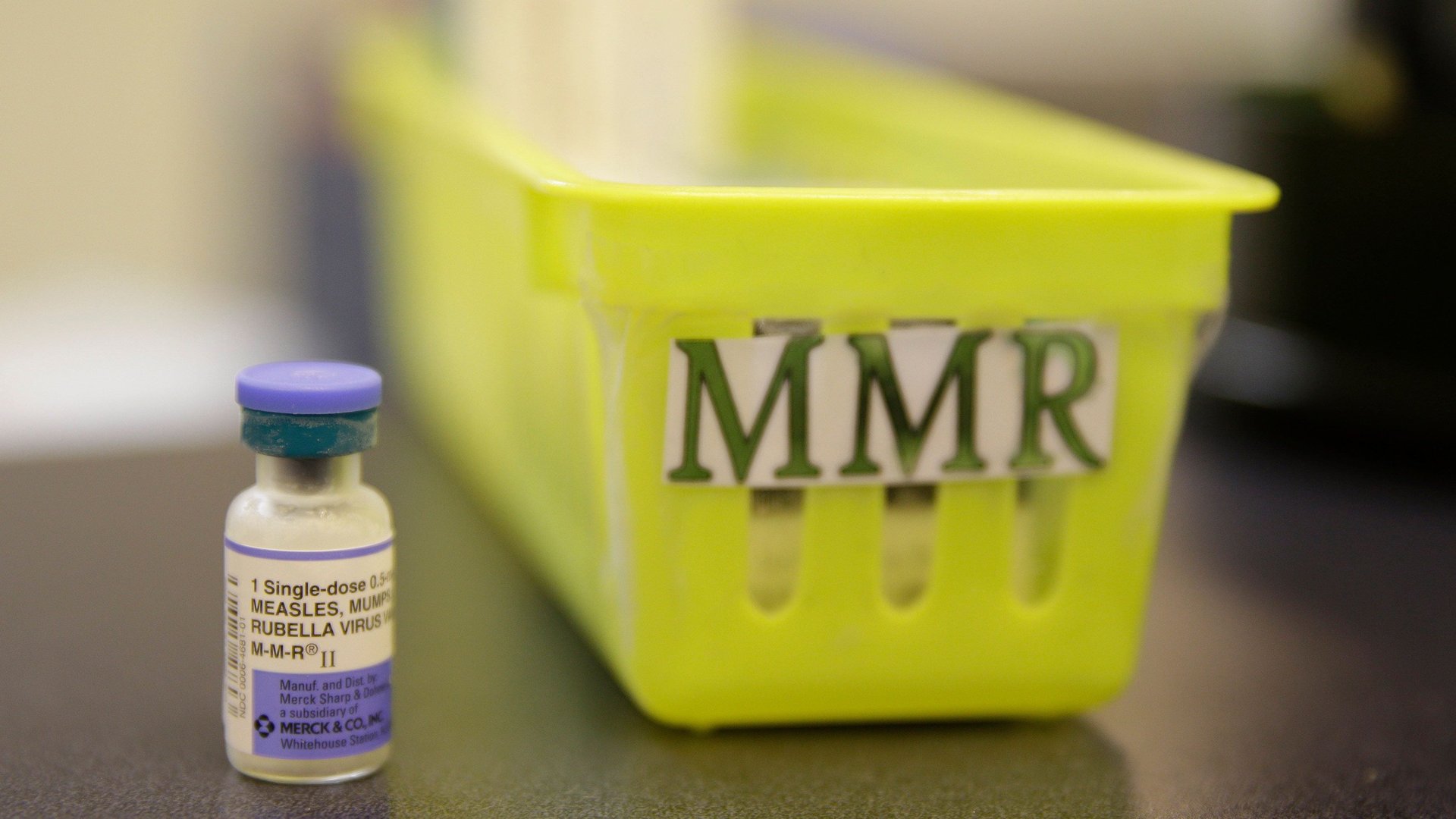How should parents deal with anti-vax families?
When Katherine Steck’s daughter was a young baby, she and a few other moms decided to form a playgroup for local families in Los Angeles. One big issue kept coming up: vaccination. They wanted to create an inclusive community for parents. They also wanted to protect their children, many of them too young to have fully vaccinated against diseases like measles, chickenpox, and rotovirus.


When Katherine Steck’s daughter was a young baby, she and a few other moms decided to form a playgroup for local families in Los Angeles. One big issue kept coming up: vaccination. They wanted to create an inclusive community for parents. They also wanted to protect their children, many of them too young to have fully vaccinated against diseases like measles, chickenpox, and rotovirus.
They finally settled upon a clear policy: Parents who chose not to vaccinate their children were not welcome in the group.
“When you choose to not vaccinate your kids you’re taking away opportunities from them… because you’re putting other children at risk,” Steck said.
In Los Angeles, where she lives with her husband and 13-month-old daughter, it turned out that her deliberations over fairness to all children, privacy, and individual choice may not have been necessary. Steck quickly discovered that local parents were interested in cloth diapers, organic food, natural ingredients, and making sure their vaccinated children did not cross paths with unvaccinated ones.
Still, Steck says, as clear as she is on her stance toward vaccination and her responsibility to protect her own daughter, she feels unclear how to broach the subject with other parents.
Medical privacy laws don’t give parents the right to know whether another family vaccinates, says Arthur Caplan, a professor of bioethics at New York University. “You can ask, but parents have no legal obligation to share vaccination status with you,” he said in a phone call.
“I think you do need to be talking with other parents as a responsible parent,” he said, comparing the vaccination conversation to asking about guns in the home, or communicating with other parents about food allergies. It’s especially important, he said, when there are outbreaks, like the many cases of measles in New York (paywall), Texas, and the Pacific Northwest right now.
“I think kids have a right not to be harmed and not to be put at a deadly risk, not just harm but deadly risk or risk of severe disability,” Caplan said. In the case of measles, he noted, “often it doesn’t kill you because we can get you to a hospital and kind of keep you going, but it can certainly leave you with brain damage or deafness. Those are serious.”
When the measles vaccine first became widely available, childhood mortality decreased in a way that could not be solely explained by the lack of measles deaths. Recent research has shown that measles doesn’t just make humans sick, it wipes out our immune systems, leaving us incredibly vulnerable to other diseases.
“For years after the cough clears up and the rash disappears, children who’ve survived a bout with measles tend to come down with bacterial and viral infections more frequently. The virus essentially wipes out your catalog of prior infections so that the only foreigner your body recognizes is measles itself,” Megan Molteni writes in Wired.
Caplan noted some school districts have started to post information about the vaccination rates in specific classrooms, saying that though they don’t identify unvaccinated children by name, in many school communities this information is enough to start a conversation among parents.
Indeed, some of the most successful strategies to get parents to vaccinate depend on other parents.
As Nadine Gartner, a founder of the pro-vaccination group Boost Oregon, wrote in the Washington Post (paywall), “Vaccine-hesitant parents aren’t stupid or anti-science. Often, they’re not even opposed to vaccines; they’re just scared.” Kim Nelson, a South Carolina mom, identified the moment that parents are most vulnerable to anti-vaccination messages: before their child is born. She booked a space at a local library and set up shop to share scientifically sound information about vaccines (paywall) with compassion. “I do think they appreciate it when you meet them sympathetically, and you don’t just try to blast facts down their throat,” she told NPR.
Though she hasn’t yet had to have a one-on-one conversation with another parent who doesn’t vaccinate, Steck says that she’s ready to put up a boundary to protect her own child and to serve as a “data point” for the other parent. “You are free to do what you want but there are downsides to it,” she explained. “I’m going to eliminate those for my child.”
Caplan sees it from another angle, noting that it’s not just children too young to be vaccinated who are at risk when outbreaks of the measles and other preventable diseases emerge. As we age, so do our immune systems, he says, and some cancer and transplant treatments also leave patients very vulnerable to disease. “It’s important to understand that vaccination is a community issue, not just an individual issue,” Caplan said. “So you’re trying to protect other people when you vaccinate… from your kid.”